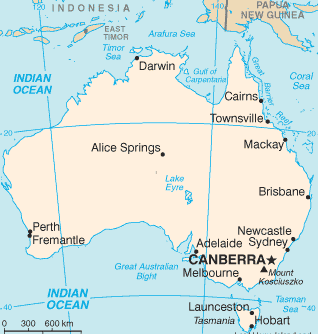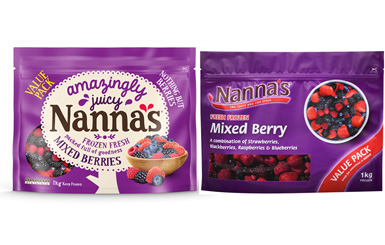Australia: 9 cases of hepatitis A linked to Nanna’s frozen mixed berries
In a follow-up to a report over the weekend, NSW Health is warning people to watch for symptoms of hepatitis following reports of two cases of hepatitis A in NSW linked to Nanna's frozen mixed berries.

Image/CIA
This follows the identification last week of three cases in Victoria linked to the same product.
In addition to the three Victoria and two New South Wales cases, Queensland Health reports that 4 cases have been linked to the berry product.
Dr Vicky Sheppeard, Director of NSW Health's Communicable Diseases Branch, urged consumers to take heed of the NSW Food Authority's warning not to consume Nanna's Mixed Berries, frozen in one kilogram plastic bags, with 'best before' dates up to and including 22/11/16.
"The NSW Food Authority advises consumers to return the product to the place of purchase for a full refund, or discard it," Dr Sheppeard said.
Nanna's Mixed Berries is made from four berries -strawberries, raspberries, blackberries from China, and blueberries from Chile - and is packed in China and distributed in Australia by Patties, based in Bairnsdale.
Poor hygiene amongst Chinese workers as well as potentially contaminated water supplies in China are thought to be the likely causes of an outbreak of hepatitis A in Australia, linked to imported frozen berries, ABC News reports.
"Hepatitis A is a viral infection of the liver that can be passed from person to person, or come from food or water contaminated with the virus.
"Each year 40 to 80 cases are reported in NSW, however the infection is almost always acquired overseas as hepatitis A is common in most developing countries."
Symptoms of hepatitis A commence two to seven weeks after exposure to an infectious person or after eating contaminated food. Early symptoms are fever, nausea and loss of appetite. After several days jaundice can develop which is noticed by yellowing of the eyeballs and skin, or dark urine and pale stools, sometimes accompanied by diarrhoea.

Image/Queensland Health
"An investigation by all health agencies is underway, but at this early stage we are not sure how many people may be affected," Dr Sheppeard said.
"Given that Nanna's Mixed Berries is a widely distributed product there is the potential that others may be sick with hepatitis A now, or develop the disease over the coming weeks.
"It is important that if people have the symptoms of hepatitis they see their doctor for testing, especially if they have eaten this product in the last two months. They should also take steps to not spread the infection by careful hand washing and not handling food or providing personal care to others until they receive advice from their doctor."
There is no specific treatment for hepatitis A and people sometimes require hospitalisation for supportive care. Hepatitis A can be prevented by vaccination. Two doses of vaccine provide lifetime protection. People exposed to hepatitis A can be protected from developing the disease if they receive the vaccine or protective antibodies within two weeks.